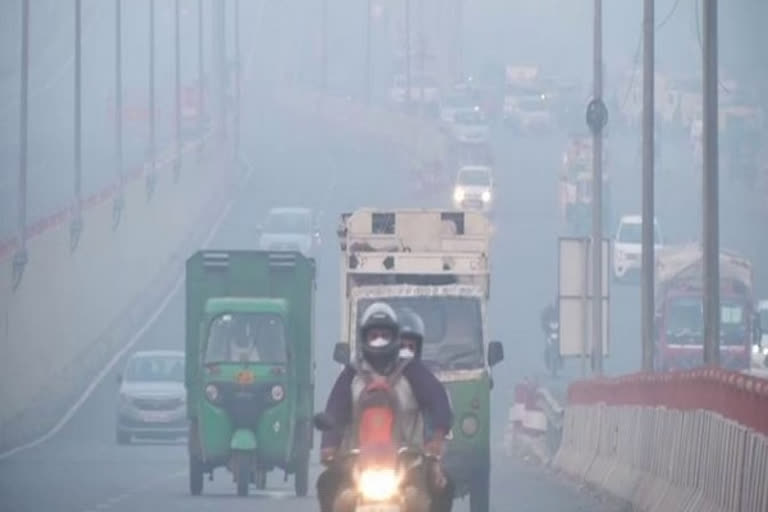New Delhi: With rising pollution levels in Delhi-NCR, taking the air quality from 'very poor' to 'severe' category, health experts express concerns over the exposure of expecting mothers to air pollution as it can have a lasting impact on brain, lungs and other organs in infants.
While air pollution has long been a reason for causing pulmonary and cardiovascular ailments, in the past few years, experts have found out that it can also impact the brain development specifically in toddlers and even lead to a higher risk of neurodevelopmental disorders like autism.
"Lead poisoning was found to be one of the reasons for loss of intelligence among the children. Air pollution can do similar harm. If the AQI is above 300, then expecting mothers could be affected," told Dr Giridhar J. Gyani, Director General, Association of Healthcare Providers (India).
Recently published, the State of Global Air 2020 report has stated that nearly 1.67 million children had died in India, last year, due to exposure to air pollution. Most of the deaths among infants were related to complications from low birth weight and premature birth, which are direct outcomes of mother's exposure to pollution during pregnancy.
Dr. Giridhar Gyani explained, "This poor air quality can lead to austism in children. This means that the children will be born with less amount of intelligence quotient (IQ). This is a very dangerous thing which people are not realizing."
"This air pollution is going to create Asthama in mother as well as in the child, right from his birth. In addition to that, a lot of miscarriages due to poor air quality. So if you have an intake of 22 mg per cubic metre polluted air, it's like smoking a cigarette. With AQI of more than 300, how many cigarettes will a mother be consuming, you can calculate. This impacts like tobacco smoking," he further added.
The report has also indicated that nearly 21 percent of neonatal deaths, can be attributed to ambient and household pollution. However, household air pollution in India has reduced from 73 percent to 61 percent between 2010 and 2019.
"To improve the air quality directly, there is very little which can be done in a household, except that they do not burn solid fuels at home....do not venture outside during the early mornings of winters," said the health expert.
When asked about the prevention that should be taken during pregnancy Dr Giridhar said, "Nutrition is very important. To mitigate the impact of air pollution, you need to have a nutritious diet for the mother as well as for the children, otherwise, the impact of air pollution will be double. Along with this, safe drinking water and good sanitation is a must."
In 2019, India recorded the highest annual average PM2.5 concentration exposure in the world, as per the State of Global Air 2020 report.
The System of Air Quality and Weather Forecasting And Research (SAFAR) Centre recorded Air Quality Index of Delhi at 331 under "very poor" category, on Tuesday, which is expected to remain the same till October 31. The central government on Monday had told the Supreme Court that it is planning to bring a new legislation to tackle air pollution in Delhi-NCR.
Also Read: Air quality turns 'severe' in parts of Delhi



